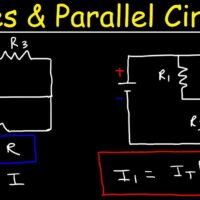Vocational schools for electricians provide hands-on training and theoretical knowledge. Graduates can pursue rewarding careers in the electrical industry.
Vocational schools offer an excellent pathway for aspiring electricians. These institutions focus on providing practical skills and comprehensive knowledge required in the electrical field. Students gain experience through hands-on training, learning how to install, maintain, and repair electrical systems. Courses often cover electrical theory, blueprint reading, and safety protocols.
Vocational programs are typically shorter than traditional college degrees, allowing graduates to enter the workforce quickly. By attending a vocational school, individuals can build a strong foundation for a successful and lucrative career as an electrician. Many schools also offer job placement assistance, helping graduates find employment opportunities in the industry.
Benefits Of Vocational Schools
Vocational schools for electricians offer specialized training for those looking to enter the electrical trade. These schools provide numerous benefits that help students become skilled professionals. From career readiness to hands-on experience, vocational schools equip students with the necessary tools to succeed in their careers.
Career Readiness
Vocational schools focus on making students job-ready. They provide targeted training that aligns with industry requirements. This means students are well-prepared to enter the workforce immediately after graduation.
- Industry-Aligned Curriculum: Courses are designed to meet industry standards and demands.
- Certification Programs: Many vocational schools offer programs that lead to industry-recognized certifications.
- Job Placement Assistance: Schools often help with job placements, connecting students with potential employers.
Vocational schools also offer shorter program durations compared to traditional colleges. This allows students to start their careers sooner. Many programs can be completed in less than two years.
| Program Duration | Average Salary |
|---|---|
| Less than 2 years | $50,000 per year |
| 2-4 years | $55,000 per year |
Students also receive guidance on resume writing and interview skills. This comprehensive support ensures they are ready to start their careers with confidence.
Hands-on Experience
Hands-on experience is a crucial part of vocational training. Students get to practice their skills in real-world settings. This practical approach helps them understand the complexities of the job.
Vocational schools have well-equipped labs where students can work on electrical systems. They learn to handle tools and equipment safely. This experience is invaluable when they start working on actual job sites.
- Practical Training: Students work on real electrical projects.
- Safety Practices: Emphasis on safety ensures students know how to protect themselves and others.
- Problem-Solving Skills: Hands-on training helps develop critical thinking and problem-solving skills.
Internships and apprenticeships are also a part of many vocational programs. These opportunities provide real-world experience and a chance to network with professionals in the field.
Students who complete their training often feel more confident in their abilities. They have already tackled many of the challenges they will face in their careers.

Credit: www.coynecollege.edu
Types Of Programs Offered
Vocational schools for electricians offer a range of programs designed to equip students with essential skills. Understanding the types of programs offered can help you choose the best path. Here, we explore the different programs that prepare you for a successful career as an electrician.
Certificate Programs
Certificate programs are an excellent choice for those who want to enter the workforce quickly. These programs usually last between 6 months to a year. They focus on the fundamental skills needed for entry-level positions.
In a certificate program, you will learn:
- Basic electrical theory
- Safety procedures
- Wiring and circuitry
- Reading blueprints
These programs often include both classroom instruction and hands-on training. Many vocational schools also offer evening and weekend classes to accommodate working students.
The table below highlights some common courses in a certificate program:
| Course | Duration |
|---|---|
| Electrical Safety | 4 weeks |
| Basic Wiring | 6 weeks |
| Blueprint Reading | 3 weeks |
| Circuitry | 5 weeks |
Completing a certificate program can qualify you for positions such as apprentice electrician or electrician helper. These roles are great stepping stones toward more advanced positions in the field.
Diploma Programs
Diploma programs provide a more comprehensive education than certificate programs. These programs typically last between 1 to 2 years. They cover both basic and advanced electrical skills.
In a diploma program, students delve into:
- Advanced wiring techniques
- Industrial electrical systems
- Residential and commercial wiring
- Electrical code and regulations
Diploma programs also often include an internship component. This allows students to gain real-world experience under the supervision of a licensed electrician.
The table below highlights some common courses in a diploma program:
| Course | Duration |
|---|---|
| Advanced Circuitry | 8 weeks |
| Industrial Systems | 10 weeks |
| Commercial Wiring | 7 weeks |
| Electrical Code | 6 weeks |
Graduates of diploma programs often qualify for higher positions, such as journeyman electrician or electrical technician. These roles offer more responsibilities and better pay.
Curriculum Overview
Vocational schools for electricians provide targeted education designed to equip students with practical skills and theoretical knowledge. The curriculum is structured to ensure students gain a comprehensive understanding of electrical systems, safety protocols, and industry standards. This curriculum overview highlights the core subjects and specialized training offered in electrician vocational programs.
Core Subjects
The core subjects in vocational schools for electricians lay the foundation for all further learning. These subjects cover essential principles and skills that every aspiring electrician must master.
Basic Electrical Theory: Understanding the fundamentals of electricity, including voltage, current, resistance, and power.
- Ohm’s Law
- Series and Parallel Circuits
- Electrical Symbols and Schematics
Safety Standards: Emphasizing the importance of safety in all electrical work. Students learn about:
- Personal Protective Equipment (PPE)
- Lockout/Tagout Procedures
- National Electrical Code (NEC)
Tools and Equipment: Familiarizing students with the tools of the trade, including:
- Multimeters
- Wire Strippers
- Conduit Benders
Mathematics for Electricians: Covering basic math skills needed in the field, such as:
- Algebra
- Geometry
- Trigonometry
Specialized Training
Specialized training in vocational schools for electricians provides in-depth knowledge in specific areas of the trade. This training is crucial for students aiming to work in specialized fields or advance their careers.
Residential Wiring: Teaching students the skills needed for installing and repairing electrical systems in homes. Key topics include:
- Reading Blueprints
- Installing Circuit Breakers
- Wiring Outlets and Switches
Commercial Wiring: Focusing on electrical systems in commercial buildings. This includes:
- Three-Phase Power
- High-Voltage Systems
- Emergency Lighting
Industrial Electrical Systems: Training students to work in industrial settings. Key areas covered include:
- Motor Controls
- Programmable Logic Controllers (PLCs)
- Instrumentation and Automation
Renewable Energy Systems: Preparing students for the future of energy. Topics include:
- Solar Panel Installation
- Wind Turbine Maintenance
- Energy Storage Solutions
Specialized training ensures that students graduate with the skills needed to excel in various areas of the electrical industry. By mastering both core subjects and specialized training, students are well-prepared for successful careers as electricians.
Job Placement Assistance
Choosing a vocational school for becoming an electrician is a smart decision. These schools offer specialized training that prepares students for real-world jobs. One key advantage is Job Placement Assistance. This service helps graduates find employment quickly after completing their programs. Job placement assistance can make the transition from student to professional seamless and stress-free.
Internships
Vocational schools often include internships as part of their curriculum. Internships provide hands-on experience in a real work environment. Students get to apply their classroom knowledge in practical settings. This experience is invaluable in building skills and confidence.
Some benefits of internships include:
- Real-world experience
- Networking with professionals
- Learning from experienced electricians
- Building a strong resume
Internships can also lead to full-time job offers. Many employers prefer hiring interns because they are already trained. Here is a table showing the typical timeline for internships:
| Stage | Duration | Activities |
|---|---|---|
| Initial Training | 1-2 months | Learning basic skills |
| Hands-on Work | 3-6 months | Assisting experienced electricians |
| Advanced Tasks | 6-12 months | Handling independent projects |
Internships are a crucial part of vocational training. They help bridge the gap between learning and working.
Networking Opportunities
Vocational schools also provide networking opportunities. Networking is vital for career growth. It helps students connect with industry professionals and potential employers.
Some networking opportunities include:
- Job fairs
- Workshops and seminars
- Alumni events
- Professional associations
Job fairs are excellent places to meet employers. Students can learn about job openings and company cultures. Workshops and seminars offer chances to learn new skills and meet experts. Alumni events allow students to connect with past graduates who are now professionals in the field.
Joining professional associations can also be beneficial. These groups offer resources, job listings, and networking events. They help students stay updated on industry trends and job opportunities. Here is a table showing the benefits of different networking opportunities:
| Opportunity | Benefit |
|---|---|
| Job Fairs | Meet multiple employers |
| Workshops | Learn new skills |
| Alumni Events | Connect with past graduates |
| Professional Associations | Access to job listings |
Networking helps students build relationships that can lead to job offers. It is a crucial part of career development in the electrician field.
Cost And Financial Aid
Vocational schools for electricians offer specialized training programs that prepare students for a successful career in the electrical industry. Understanding the cost and financial aid options is crucial for prospective students. This guide will help you navigate tuition fees and scholarship opportunities.
Tuition Fees
The cost of attending a vocational school for electricians varies by institution and program length. On average, tuition fees range from $3,000 to $20,000. Some factors that influence the cost include:
- Program length: Shorter programs tend to cost less.
- Location: Schools in urban areas may have higher fees.
- School reputation: Renowned institutions might charge more.
Here is a sample breakdown of tuition fees from different schools:
| School | Program Duration | Tuition Fees |
|---|---|---|
| ABC Vocational School | 6 months | $4,500 |
| XYZ Technical Institute | 1 year | $12,000 |
| 123 Electrician Academy | 2 years | $18,000 |
Students should budget for additional expenses like:
- Books and materials
- Lab fees
- Tools and safety gear
These costs can add up, so it’s vital to plan accordingly and explore financial aid options.
Scholarship Options
Many vocational schools offer scholarships to help students cover tuition costs. Scholarships are usually awarded based on merit, need, or specific criteria related to the electrical trade.
Here are some common types of scholarships:
- Merit-based scholarships: Awarded to students with excellent academic records or outstanding skills.
- Need-based scholarships: Given to students who demonstrate financial need.
- Trade-specific scholarships: Offered to students pursuing careers in the electrical field.
Below is an example of some scholarships available:
| Scholarship Name | Amount | Eligibility Criteria |
|---|---|---|
| Electrician Excellence Award | $1,000 | Merit-based, GPA above 3.5 |
| Future Electrician Grant | $2,500 | Need-based, low-income families |
| Trade Skills Scholarship | $1,500 | Enrolled in an electrician program |
Students should also look into local and national organizations that support trade education, as they often provide additional scholarship opportunities. Applying for multiple scholarships increases the chances of receiving financial aid and reducing the overall cost of education.
Accreditation Importance
Vocational schools for electricians offer specialized training to equip students with the skills needed for a successful career in the electrical field. One crucial aspect of choosing the right vocational school is understanding the importance of accreditation. Accreditation ensures that the educational institution meets specific quality standards, providing students with a valuable and recognized certification upon completion.
Quality Assurance
Accreditation serves as a mark of quality assurance for vocational schools. It ensures that the school meets high standards in its curriculum, faculty, and facilities. When a school is accredited, students can trust that they are receiving a top-notch education. Here are some key points to consider:
- Curriculum Standards: Accredited schools follow a standardized curriculum that covers essential electrical concepts and practical skills.
- Qualified Instructors: These schools employ experienced and certified instructors who are experts in their field.
- Modern Facilities: Accredited institutions invest in up-to-date equipment and facilities to provide hands-on training.
Accreditation also involves regular reviews and assessments to ensure that the school maintains its quality standards. These reviews include:
| Review Type | Frequency |
|---|---|
| Curriculum Review | Every 3 years |
| Instructor Evaluation | Annually |
| Facility Inspection | Bi-annually |
By attending an accredited vocational school, students can be confident that they are receiving an education that meets industry standards and prepares them for a successful career.
Industry Recognition
Accredited vocational schools are recognized by the industry, making their graduates more attractive to potential employers. Here are some reasons why industry recognition is important:
- Employer Trust: Employers prefer hiring candidates from accredited schools because they trust the quality of education provided.
- Certification Acceptance: Certifications from accredited schools are widely accepted and respected in the industry.
- Networking Opportunities: Accredited schools often have partnerships with industry organizations, providing students with valuable networking opportunities.
Graduates from accredited schools also have a higher chance of securing internships and apprenticeships, which are critical for gaining practical experience. Many employers have established relationships with accredited institutions and actively seek out their graduates. This relationship can be beneficial in the following ways:
| Benefit | Explanation |
|---|---|
| Job Placement Programs | Many accredited schools offer job placement programs to help graduates find employment. |
| Industry Certifications | Graduates may receive additional industry-recognized certifications, enhancing their credentials. |
| Continuous Education | Accredited schools often provide opportunities for continuous education and professional development. |
Choosing an accredited vocational school ensures that students receive a recognized education that opens doors to various career opportunities in the electrical industry.
Licensing Requirements
Vocational schools for electricians offer specialized training that prepares students for a rewarding career in the electrical field. One of the critical steps to becoming a professional electrician is meeting the licensing requirements. Licensing ensures that electricians adhere to safety standards and possess the necessary skills to perform their job effectively. This section delves into the licensing requirements, focusing on state regulations and exam preparation.
State Regulations
Each state in the U.S. has unique regulations for electricians. Understanding these regulations is crucial for anyone pursuing a career in this field. While requirements vary, some common elements include:
- Educational Requirements: Most states require electricians to complete a vocational training program or apprenticeship.
- Work Experience: A certain number of hours of hands-on experience under the supervision of a licensed electrician is often mandatory.
- Examinations: Passing a state or local licensing exam is typically required.
- Continuing Education: Some states require electricians to complete ongoing education to maintain their license.
Here’s a brief overview of the requirements in a few states:
| State | Educational Requirement | Work Experience | Exam | Continuing Education |
|---|---|---|---|---|
| California | Vocational Program | 8,000 hours | Yes | 32 hours every 3 years |
| Texas | Apprenticeship | 8,000 hours | Yes | 4 hours every year |
| New York | Vocational Program | 7,000 hours | Yes | None |
Exam Preparation
Preparing for the licensing exam is a critical step for aspiring electricians. The exam tests knowledge of electrical theory, the National Electrical Code (NEC), and practical skills. Here are some effective strategies for exam preparation:
- Study Materials: Invest in quality study guides and textbooks that cover the NEC and electrical theory.
- Practice Tests: Taking practice exams can help you become familiar with the format and types of questions.
- Study Groups: Joining a study group can provide support and enhance understanding through discussion.
- Online Courses: Many websites offer online courses specifically designed for electrician licensing exams.
- Hands-On Practice: Apply theoretical knowledge through practical exercises and lab work.
Creating a study schedule can also be beneficial. Allocate specific times each day for different subjects. This structured approach ensures all topics are covered comprehensively. Remember, consistent study and practice are the keys to success.
Vocational schools often provide resources like mock exams and tutoring sessions. Utilize these resources to boost your confidence and readiness for the exam.

Credit: www.accreditedschoolsonline.org
Career Paths For Electricians
Vocational schools for electricians offer focused training for a wide range of career paths. Electricians enjoy varied opportunities based on their skills and interests. Let’s explore the most common career paths for electricians.
Residential Work
Residential electricians work in homes and apartment buildings. They install, maintain, and repair electrical systems. This path is ideal for those who enjoy working in a home setting and interacting with homeowners.
Key tasks of residential electricians include:
- Installing new wiring and lighting systems
- Maintaining existing electrical systems
- Repairing faulty wiring and fixtures
Residential electricians also perform safety inspections. They ensure that electrical systems meet local building codes and safety standards. This is crucial for the safety of the residents.
Many residential electricians work for contracting companies. Others choose to start their own businesses. This career path offers the flexibility to be self-employed and set your own schedule.
Commercial Opportunities
Commercial electricians work in buildings like offices, shops, and factories. They handle more complex electrical systems compared to residential work. This path is perfect for those who enjoy challenging projects and working in different environments.
Key responsibilities of commercial electricians include:
- Installing and maintaining lighting and power systems in large buildings
- Ensuring electrical systems are energy-efficient
- Repairing and upgrading existing electrical systems
Commercial electricians often work on construction sites. They collaborate with other professionals like architects and engineers. This teamwork ensures that electrical systems integrate smoothly with other building systems.
Many commercial electricians work for large companies. Some find opportunities in government agencies. This career path can lead to supervisory roles and higher earnings over time.

Credit: cetweb.edu
Frequently Asked Questions
What School Is Best For Electricians?
The best schools for electricians include Penn Foster, IEC, and Lincoln Tech. These institutions offer comprehensive training and certifications.
How Long Is Electrician School In Texas?
Electrician school in Texas usually takes about 1 year for a certificate. An associate degree typically takes 2 years.
Do I Have To Go To Trade School To Become An Electrician In Texas?
No, you don’t have to attend trade school to become an electrician in Texas. You need to complete an apprenticeship and pass the licensing exam.
How Much Is Electrician Trade School In Texas?
Electrician trade school in Texas costs between $1,000 and $12,000. Prices vary depending on the program and institution.
Conclusion
Choosing a vocational school for electrician training can be a life-changing decision. These programs offer hands-on experience and practical skills. With the growing demand for skilled electricians, a vocational education can lead to a rewarding career. Invest in your future by exploring vocational schools for electricians today.




